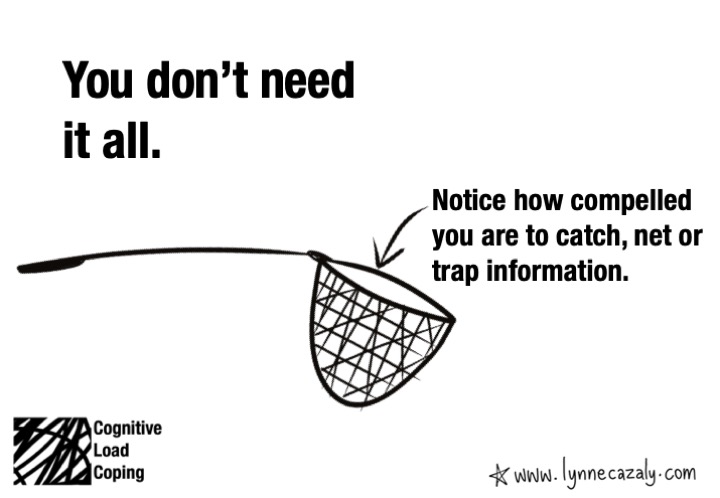You don’t need to write (or type) it all
 Tuesday, September 10, 2019 at 4:32PM
Tuesday, September 10, 2019 at 4:32PM  I’m talking cognitive load coping this week; how to handle all the information we’re exposed to.
I’m talking cognitive load coping this week; how to handle all the information we’re exposed to.
The times when we need to use cognitive load coping the most include training, meetings, conferences, conversations, coaching; whenever people are thinking and talking together and information is shared.
This information can be:
🌕 written: a report, presentation or a pack of information; or
🌕 spoken: the verbal part of a presentation or conversation.
Plus our own thinking process.
We need to manage our own cognitive load better than we do.
Here’s one of the biggest tips I can give you: You don't need to write (or type) everything down. We can write or type w-a-y too much information in an attempt to ‘catch’ or ’trap' what's happening and what's being covered. But some of the information may not be ‘worth’ catching or trapping! Yet we do it. And it makes our cognitive load worse.
Notice the feeling of wanting or needing to catch and trap so much information. You don’t need it all.
Are you a catcher or 'trapper' of information? Do you want to catch it all?





















